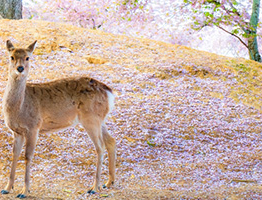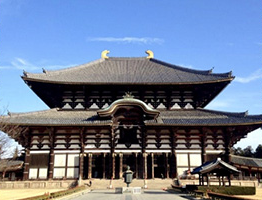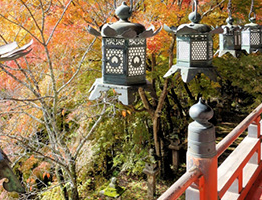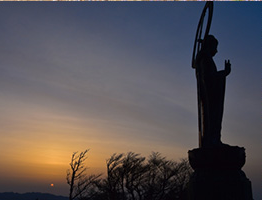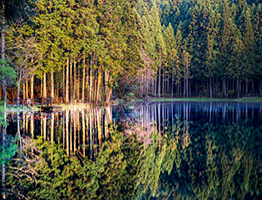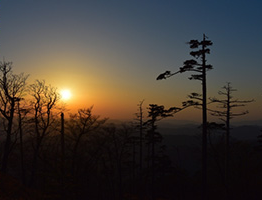Attractivité des études au Japon
La vie au Japon par région
Nara
Aperçu des régions
Nara est une ancienne ville japonaise. Il possède de nombreux sites du patrimoine mondial et continue de préserver les importantes valeurs traditionnelles du Japon. Dans le parc de Nara, les cerfs errent librement, créant un espace très paisible. De plus, le climat entre le nord et le sud est différent, Odaigahara au sud est une zone très pluvieuse qui dispose d'une nature riche avec une vaste forêt vierge. Au contraire, la partie nord de la province recoit peu de précipitations.
 * Cette carte n'inclut pas les caractéristiques topographiques ni les zones insulaires et ne couvre pas la totalité du Japon.
* Cette carte n'inclut pas les caractéristiques topographiques ni les zones insulaires et ne couvre pas la totalité du Japon.
Accès
- Si vous prenez l’avion
-
Depuis Tokyo
Aéroport de Haneda
3 h 10 minGare de Nara
- Si vous prenez le Shinkansen ou le train
-
Depuis Tokyo
Gare de Tokyo
3 hGare de Nara
Les lieux recommandés par les habitants locaux
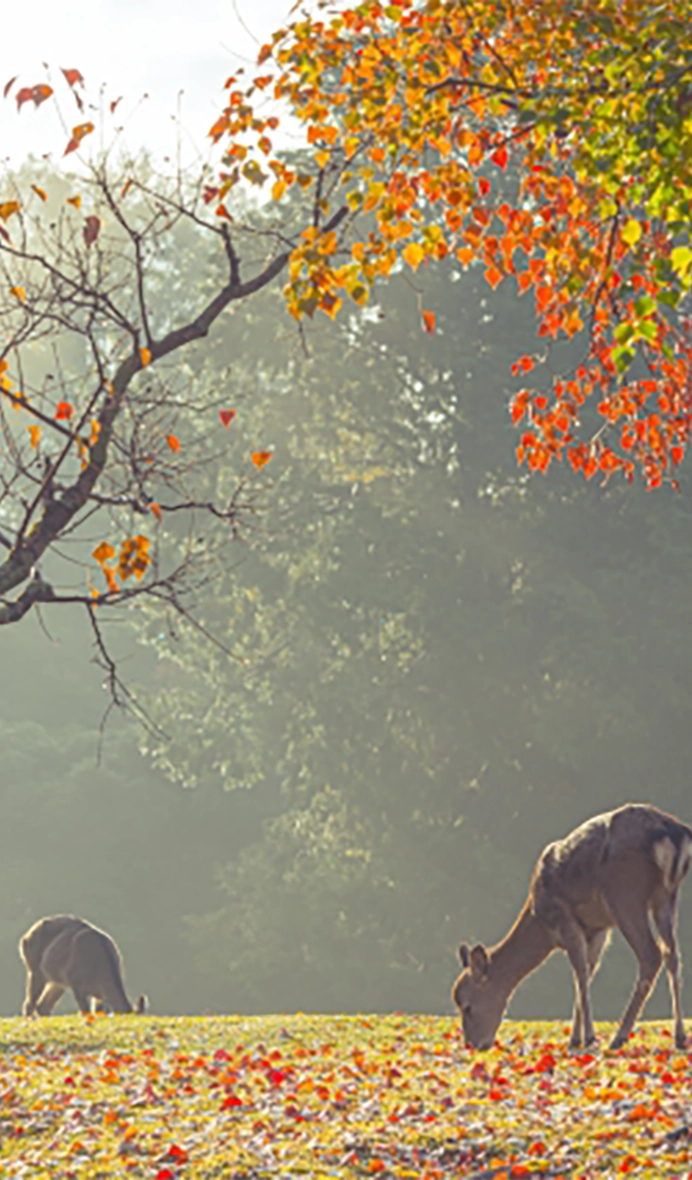
Parc Nara
Dans ce parc, il y a environ 1200 cerfs qui sont considérés comme des messagers du sanctuaire Kasuga Taisha. Si vous apportez des Sembei pour les cerfs, ils s'approcheront sûrement tout près de vous.
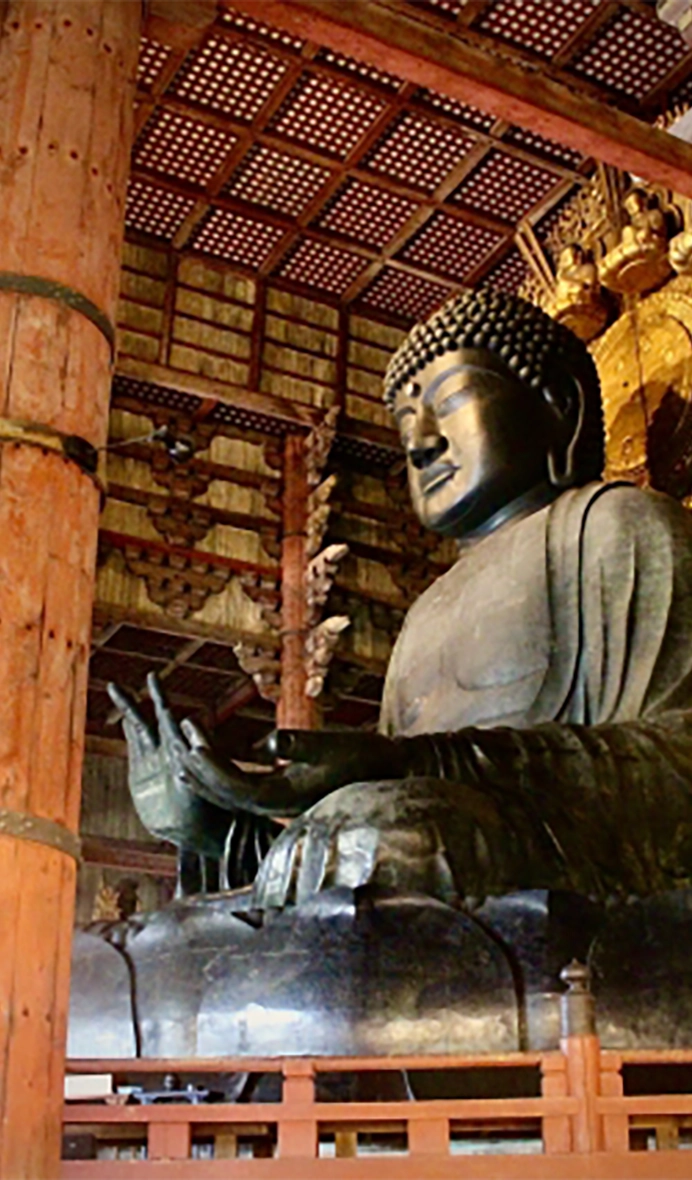
Temple Todai-ji
C'est un endroit célèbre qui est considéré comme le "Grand Bouddha de Nara". À l'intérieur de la salle du Grand Bouddha, il y a un pilier sur lequel est percé un trou de la taille du nez du Bouddha, n'importe qui peut essayer de passer au travers.
Nourriture recommandée par les habitants locaux
-
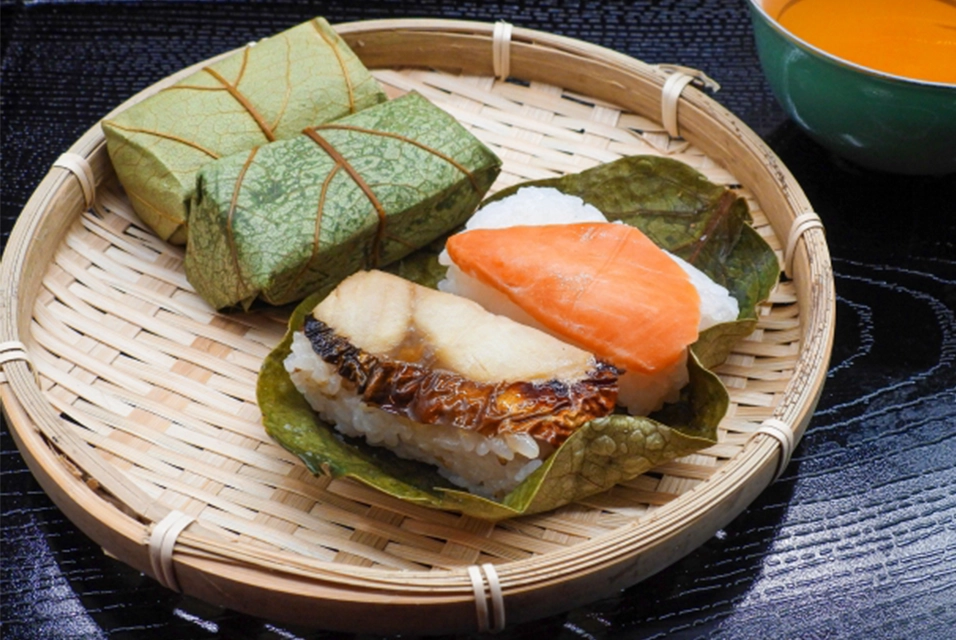
Sushi feuille de kaki
Ce sushi est préparé en plaçant des morceaux de poisson saba et de saumon crus sur du riz vinaigré, avant de les compriment dans des feuilles de kaki.
-
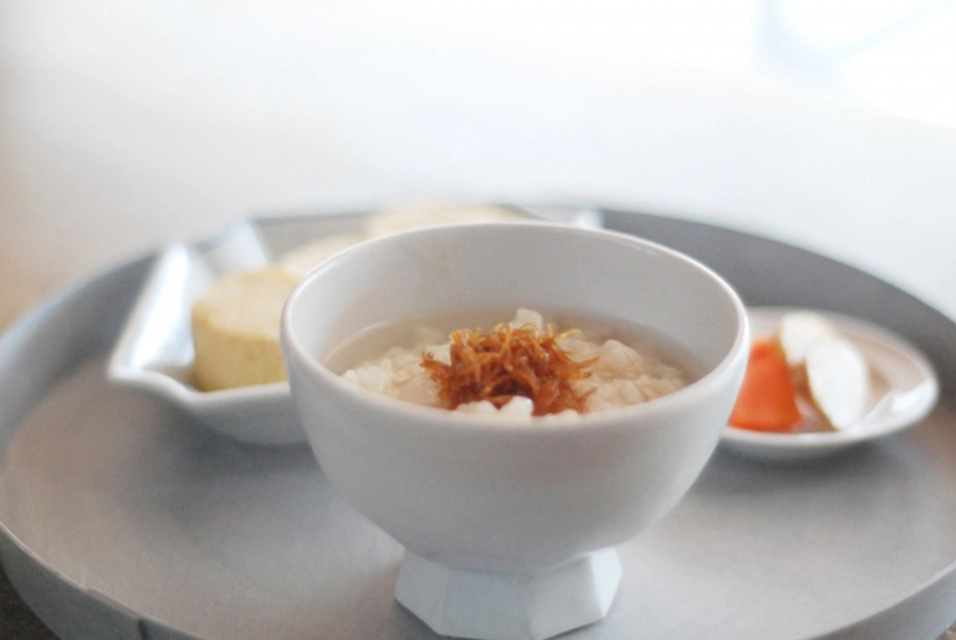
Bouillie de thé (Cha gayu)
C'est une bouillie cuite avec du thé. C'est un plat avec une longue histoire (1200 ans), que les moines de Nara avaient l'habitude de manger. Ce plat a un goût doux.
Climat (température/précipitations)
La température moyenne annuelle est d’environ 16,6 °C (en 2023), offrant un climat doux. En raison de la topographie en bassin de la région de Nara, l’été est particulièrement humide et chaud, tandis que l’hiver est marqué par un froid intense. Le sud de la préfecture de Nara reçoit des précipitations abondantes.
Température et précipitations mensuelles
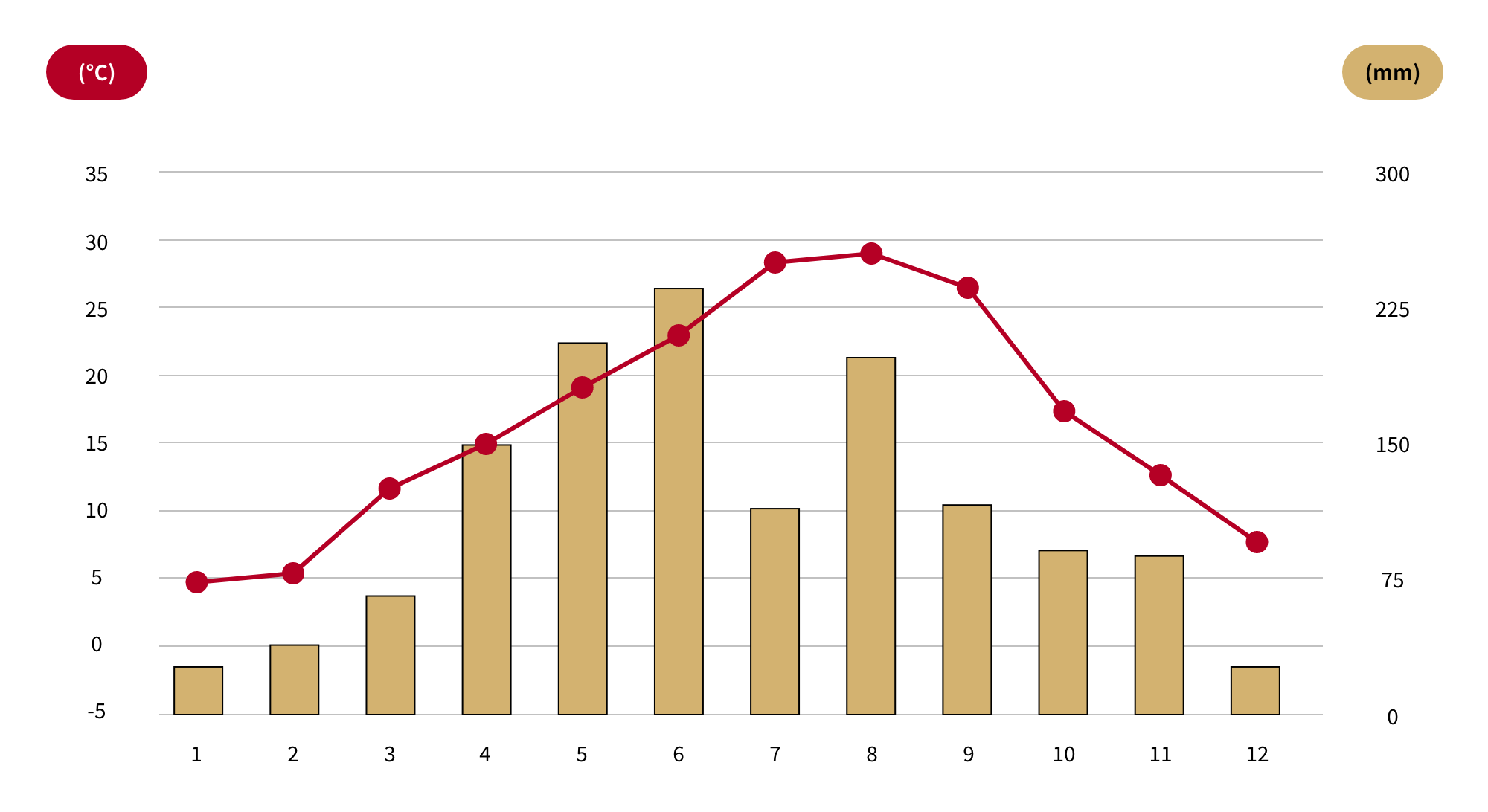
(Source : Agence météorologique du Japon (JMA))
Coût de la vie
-
Prix du loyer
40 137 yen
-
Frais d’eau, électricité, chauffage
9 308 yen
-
Manger au restaurant
(nouilles)749 yen
-
1 kg de pain de mie
494 yen
-
1 L de lait
241 yen
*Source
- Loyer
Site portail des statistiques officielles du Japon Enquête sur le logement et les terrains - 2023
Loyer moyen mensuel des locations privées (logements exclusivement résidentiels) d’une superficie totale inférieure ou égale à 29 m² dans les capitales de préfecture (hors loyers de 0 yen) - Frais d’eau, électricité, chauffage
Site portail des statistiques officielles du Japon Enquête sur les revenus et les dépenses des ménages - 2023
Montant des dépenses par personne d’« eau, électricité, chauffage » obtenu à partir de la dépense totale annuelle des ménages dans les capitales de préfecture ramenée à une valeur moyenne mensuelle divisée par le nombre moyen de personnes par ménage. - Repas à l’extérieur (ramen), 1 kg de pain de mie, 1 L de lait
Site portail des statistiques officielles du Japon Enquête sur les prix de détail - août 2024
Liens connexes
Classement du nombre d’étudiants internationaux par pays
Vietnam
Chine
Népal
Nombre total d’étudiants internationaux au Japon : 279 274
Nombre total d’étudiants internationaux dans la préfecture de Nara : 1 766
D’après l’Enquête annuelle sur les étudiants internationaux au Japon, 2023
Liste des universités de la région
Si moins de 10 établissements ont publié des informations dans la section « Recherche d’école / spécialité » de ce site Web, leurs noms sont énumérés dans le désordre. S’il y a 10 établissements ou plus, ils ne sont pas répertoriés sur cette page, mais vous pouvez en consulter la liste en effectuant une recherche via « Passer à la recherche d’école / spécialité » ci-dessous.

